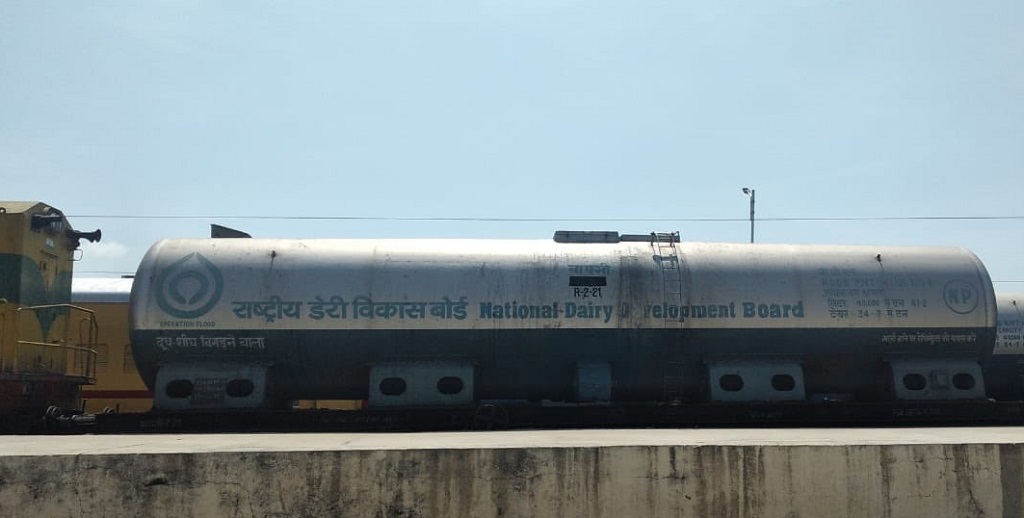Coronavirus Lockdown: After grocery, vegetables shortage, MHA issues SOPs for Maintaining Supply of Essential Goods

Train Milk supply
New Delhi, March 26, 2020: Union Ministry for Home Affairs (MHA) issued Standard Operating Procedure (SOPs) for maintaining supply of essential goods today, in order to relieve hardships faced by people during 21-day nationwide lockdown to fight the Coronavirus outbreak.
The Union Home Secretary, Shri Ajay Kumar Bhalla wrote to all States/UTs and asked them to ensure the availability of essential goods to people during the period of the lockdown. For this, the SOPs suggest to let e-commerce remain operational and encourage home delivery of essential goods, while ensuring strict social distancing.
The SOPs prescribe that employees or persons engaged in the supply chain shall be allowed to commute on the basis of e-pass or any other certification issued by the concerned local authorities, on production of a valid photo identity card. In case of unorganized sector, persons engaged in the supply of essential goods may be allowed based on approval/authorization by the local authorities.
The SOPs, inter alia, also prescribe that the facilities engaged in supply of essential goods would carry out regular health and sanitation check-up of employees engaged and provide them proper protective gear.
Standard Operating Procedure (SOP) for maintaining supply of Essential Goods :
The availability of essential goods takes place through small local retail shops, large organized retail stores and e-Commerce companies. In order to ensure smooth functioning of these three types of operators, it is important that following constituents of the supply chain, are also allowed to operate:
- a) Suppliers of essential goods, including restaurants supplying home delivery of cooked food items; b) Facilities for storage of such essential goods which, may be known as warehouse, godown etc.; c) Transporters/ drivers/ loaders etc. of essential goods from the place of manufacture to wholesalers and/or retailers. Such transportation may involve intra-city, inter-city in same state/UT or inter-state movement of essential goods; d) Manufacturing units of essential goods including drugs, pharmaceuticals, medical devices, their raw material and intermediates.
- Accordingly, the following standard operating procedure is suggested for ensuring smooth availability of essential goods:
All facilities in the supply chain of essential goods, whether involved in manufacturing, wholesale or retail of such goods through local stores, large brick and mortar stores or e-Commerce companies should be allowed to operate, ensuring strict social distancing.
All such facilities as registered with the State Government/UT under the Shops and Establishment registration regime, which can be used to randomly verify the veracity of documents produced.
While warehousing facilities with wholesalers and retailers of essential goods might have non-essential goods, they should not be closed down for the fact that non-essential items are also stored.
The retail end of the supply chain shall operate only in essential goods as specified in the orders of MHA. They will provide an undertaking to this effect and also allow subsequent audit of their records with a view to ensure compliance.
The employees or persons engaged in the supply chain shall be allowed to commute on the basis of e-pass or any other certification issued by the concerned local authority (ies). In addition, the said employee/ person shall carry a valid photo identification card.
In case of unorganized sector, persons engaged in supply of essential goods may be allowed based on approval/ authorization issued by local authority (ies).
These commercial entities will ensure that they engage only bare minimum staff to supply essential goods only.
These facilities shall carry out regular health and sanitation check-up of employees engaged and will provide them with proper protective gear.
The State Government shall open a 24X7 control room to register complaints/grievances and share these numbers widely.








